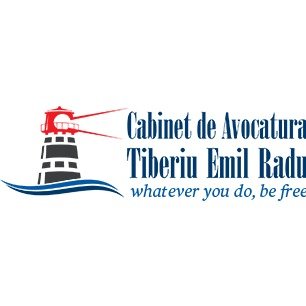Best Native People Lawyers in Constanța
Share your needs with us, get contacted by law firms.
Free. Takes 2 min.
List of the best lawyers in Constanța, Romania
About Native People Law in Constanța, Romania
Native People in Constanța, Romania are recognized as a distinct cultural and ethnic group. They have specific legal rights aimed at protecting and preserving their cultural identity, traditions, and heritage. Native People law in Constanța, Romania aims to facilitate the equal participation of Native People in societal activities and ensure their protection against discrimination.
Why You May Need a Lawyer
There are various situations where you may require legal help regarding Native People in Constanța, Romania. Some common examples include:
- Seeking assistance in acquiring recognition as a Native Person
- Filing a complaint for discrimination or violation of Native People rights
- Seeking legal advice and representation for land rights or property disputes
- Obtaining guidance on cultural heritage preservation and protection
- Addressing issues related to employment, education, and healthcare rights
Local Laws Overview
The following key aspects of local laws in Constanța, Romania are particularly relevant to Native People:
- Recognition: The law provides a mechanism for individuals to seek official recognition as a Native Person, which grants certain rights and privileges.
- Non-discrimination: Native People are protected against discrimination based on their ethnicity, culture, or heritage.
- Land rights: Legal provisions safeguard the land rights of Native People, promoting their use and management of ancestral territories.
- Cultural heritage: Laws aim to protect and preserve the cultural heritage of Native People through mechanisms such as support for traditional practices and commemoration of cultural events.
Frequently Asked Questions
1. Can anyone become a Native Person in Constanța, Romania?
No, becoming a Native Person in Constanța, Romania requires meeting certain criteria defined by law. These criteria often include having a Native heritage and actively participating in Native cultural practices.
2. How can I file a complaint for discrimination as a Native Person?
If you believe you have faced discrimination based on your Native ethnicity, you can contact a lawyer experienced in Native People law to guide you through the process of filing a complaint with the appropriate authorities.
3. Are there any specific land rights for Native People in Constanța?
Yes, Native People in Constanța, Romania have specific land rights to their ancestral territories. These rights aim to protect their connection to the land and ensure sustainable management.
4. How can I protect and preserve my Native cultural heritage?
You can seek legal advice on cultural heritage protection, which may include registering cultural practices, traditions, or artifacts, as well as participating in programs and events aimed at preserving Native cultural heritage.
5. Are there any legal resources available for Native People in Constanța?
Yes, various governmental bodies and organizations work towards supporting Native People and providing legal resources. Contact your local Native People association or cultural center for more information.
Additional Resources
Here are some resources, governmental bodies, and organizations related to Native People in Constanța, Romania that can be helpful for legal advice:
- Constanța County Council
- National Council for Combating Discrimination
- National Authority for the Protection of Cultural Heritage
- Association of Native People in Constanța
Next Steps
If you require legal assistance regarding Native People in Constanța, Romania, here's what you can do:
- Identify your specific legal issue or concern.
- Research and choose a lawyer or legal organization experienced in Native People law.
- Contact the chosen lawyer or organization to schedule a consultation.
- Prepare relevant documents and information regarding your case.
- During the consultation, explain your situation and seek professional advice.
- Based on the advice received, decide on the appropriate course of action.
Lawzana helps you find the best lawyers and law firms in Constanța through a curated and pre-screened list of qualified legal professionals. Our platform offers rankings and detailed profiles of attorneys and law firms, allowing you to compare based on practice areas, including Native People, experience, and client feedback.
Each profile includes a description of the firm's areas of practice, client reviews, team members and partners, year of establishment, spoken languages, office locations, contact information, social media presence, and any published articles or resources. Most firms on our platform speak English and are experienced in both local and international legal matters.
Get a quote from top-rated law firms in Constanța, Romania — quickly, securely, and without unnecessary hassle.
Disclaimer:
The information provided on this page is for general informational purposes only and does not constitute legal advice. While we strive to ensure the accuracy and relevance of the content, legal information may change over time, and interpretations of the law can vary. You should always consult with a qualified legal professional for advice specific to your situation.
We disclaim all liability for actions taken or not taken based on the content of this page. If you believe any information is incorrect or outdated, please contact us, and we will review and update it where appropriate.








